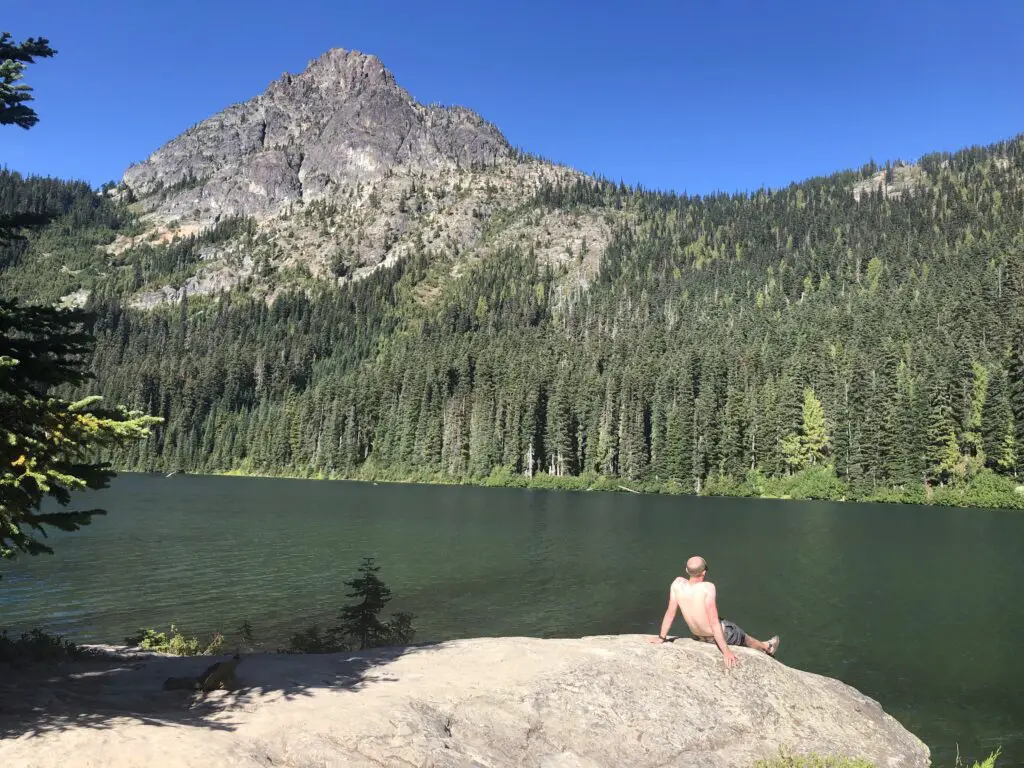Best camping showers of 2022
Lockdown and travel restrictions have made a lot of people think about taking a staycation this summer. If your plan for a summer holiday is less ‘Cruising in the Carribean’ and more ‘Camping in Brecon‘, you might be looking for a simple, portable, camping shower so you can still stay fresh and ready to stroll to a pub after a long day on the trail.
The best camping showers are lightweight and robust enough to carry with you, quick and easy to set up, and still deliver enough of a flow of water to be able to get clean. They use various different methods to work, but essentially you’re looking at three main variables, which I’ll discuss below.

Choosing a camping shower
Water heating method
The first thing to consider when choosing the best camping shower for you is how the water will be heated. Essentially you have four main options:
- No heating at all. That’s definitely an option, and some of the simplest, cheapest and lightest showers are just a convenient way to get slightly pressurised water over yourself. Just bear in mind that it’ll be as cold as the water you put into it – you could heat some water on a camp stove first, or you could just embrace the wilderness and brave a cold shower.
- Solar heating. The next step up, and still generally pretty light and portable, are solar showers. These generally have a water reservoir made of material specially designed to absorb heat from the sun and gradually warm the water inside. If you can leave the shower in a sunny spot all day, you’ll probably have a nice warm shower at the end of your day’s hiking. On the other hand, if there’s no sun or you want to shower straight after setting up camp and without waiting a few hours to warm the water, this might as well be the ‘no heating at all’ option!
- Gas heated. Some camping showers can use a gas bottle to heat the water and drive the pump. This gives you an experience a bit closer to your shower at home, in the sense of warm water and decent pressure, and in principle is ‘portable’ in that it doesn’t require electricity. However, any gas heated shower we’ve ever seen is far too bulky and heavy for hikers so is more likely to be popular with car campers or people using small camper-vans with no integrated shower or water heater.
- Electric. Electric showers could be battery powered, mains powered (for in a well-equipped camp-site) or run off a car cigarette lighter plug. Either way, electricity will heat the water and drive a pump quickly and efficiently, and there are some great electric camping showers out there. But of course you’re sacrificing portability – even with a battery, it’s going to need recharging fairly regularly. And, like the gas showers, the weight and bulk of heaters and pumps make electric showers impractical for hikers.
Pumping method
If you get a gas or electric shower then pumping the water is likely to be taken care of for you. But, for the more portable options that don’t have a power source, what are your options for getting a bit more power than simply tipping a flask of water over yourself?
Well, you’ve really got three options to choose from:
- Gravity. The simplest, lightest and cheapest showers simply need to have the reservoir hung somewhere above your head, and then use the power of gravity and the physics of a large volume of water travelling through a narrow tube to provide a bit of pressure. But, let’s face it, only a bit. These are a very portable option for a quick rinse after a hike, but they do rely on finding somewhere to hang them and the pressure usually leaves something to be desired.
- A hand pump. The next option is a reservoir with some sort of hand pump built in – as you pump, you’ll get a decent flow of water. Of course, this relies on you (or someone else) pumping continuously while you shower and the pumping mechanism makes these heavier and bulkier.
- Electricity. Even if you don’t bother with using electricity to heat your water, there are options out there for USB or battery-powered pumps, and since these require less electricity and internal parts than showers that both heat and pump, can still be a relatively portable option.
Some of our favourite camping showers
As discussed above, once you look at car or van camping, a whole host of other options come into play – but here are three of the best portable camping showers that even a self-supported hiker could realistically carry with them.



